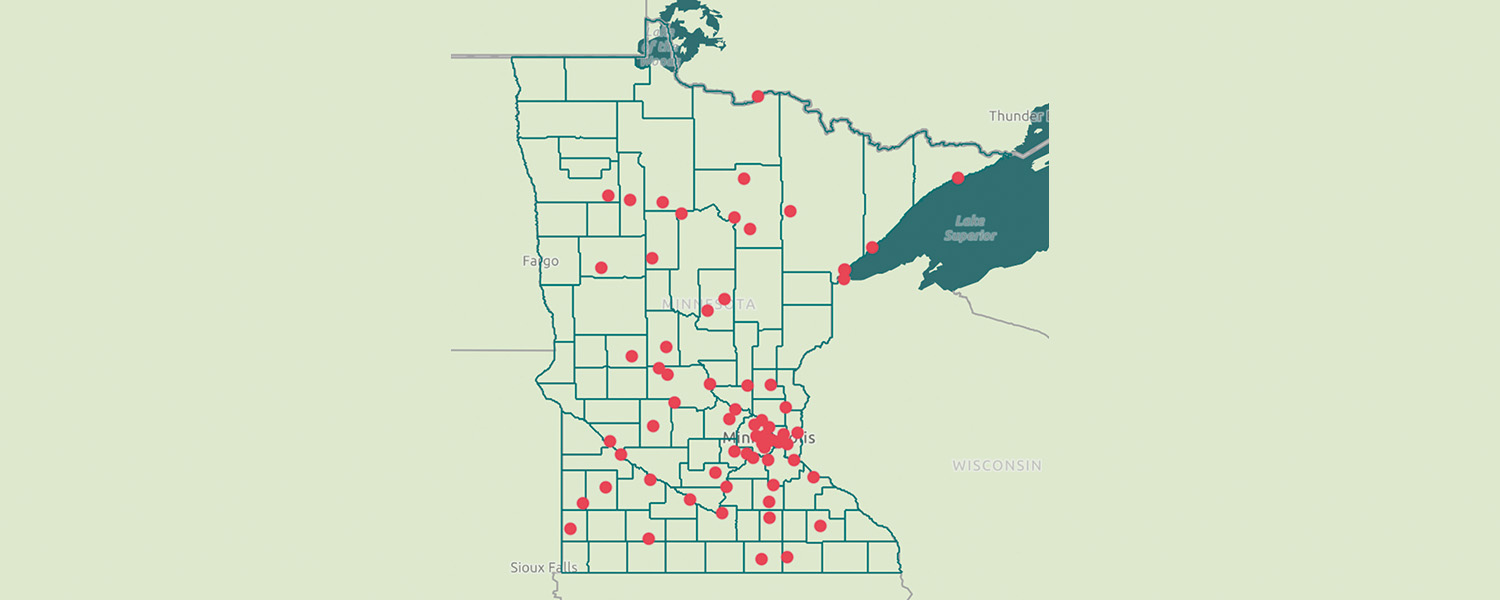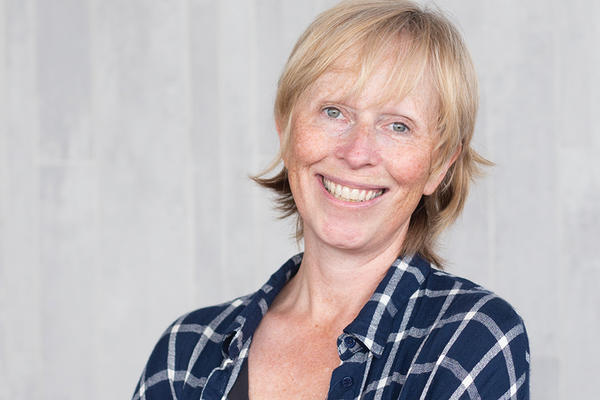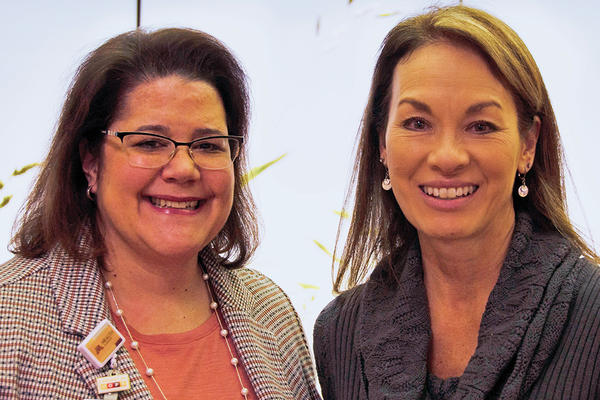Sexual assault victim survivors and their communities have new tool to assist in seeking care
Collaboration of Re LAB, U-Spatial and MNCASA creates new map of Minnesota resources
May 13, 2024
Brett Stursa

The map shows sexual assault nurse exam availability and advocacy locations in Minnesota.
People seeking health care or additional assistance after a sexual assault now can access a first-of-its-kind map to locate where to find help.
The map, which shows sexual assault nurse exam availability and advocacy locations across the state of Minnesota, is the result of a partnership led by Professor Carolyn Porta, PhD, RN, SANE-A, FAAN, and the Re LAB team with U-Spatial and the Minnesota Coalition Against Sexual Violence (MNCASA).
“If someone is in crisis we don’t want them digging to find who they can go to for help, because it’s a big deal that they are reaching out for help,” says Megan McKinnon, member and organization services manager for MNCASA. “We want to get them to where they need to be as quickly as possible. It’s much nicer to have a clickable map where you can plug in where you are instead of going through a list of resources.”
MNCASA provides state-wide support and resources to 60 sexual assault programs and allies to prevent sexual violence while promoting a comprehensive, socially just response for all victim survivors.
Re LAB is a workforce development initiative supported in part by a Health Resources and Services Administration workforce grant that aims to increase the numbers and capacity of sexual assault nurse examiners (SANE) throughout Minnesota and the U.S. with a focus on rural and underserved areas. The mapping initiative was part of a technical assistance effort supporting MNCASA and agencies across Minnesota.
If staff or others helping a victim survivor can more readily identify resources, regardless of where the call or request is coming from, then one barrier to accessing health care and advocacy services can be removed.
“Having a spatial component has been a very powerful tool,” says Ellen Frerich, MN, RN, PHN, Re LAB project manager.
The immediate impact, she says, is that advocates and other health professionals are able to utilize the map to quickly and accurately let potential patients know their options. She says it also allows SANE trainees to identify programs close to them for potential employment.
“The story the map is telling is that we are doing better getting resources accessible to all and that we need to continue doing better,” says Porta, Re LAB principal investigator and School of Nursing professor.
Creating the map was a collaborative process with U-Spatial, the University of Minnesota mapping and data visualization experts. The interprofessional collaboration was valuable in all directions, says Len Kne, MGIS, director of U-Spatial. “We approach questions in different ways,” says Kne.
McKinnon appreciates the partnership, including the training she received from U-Spatial to maintain the map that is housed on the MNCASA website.
“We feel lucky having both Re LAB and U-Spatial support this work,” says McKinnon. “We would not have been able to create a map on our own at this level.”

